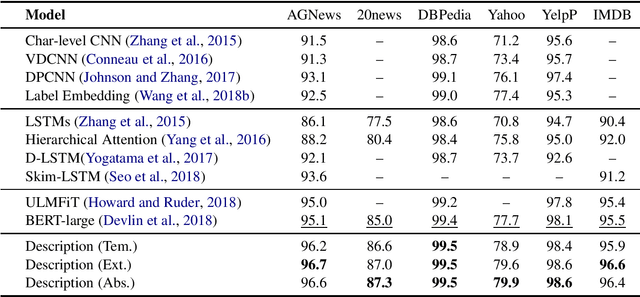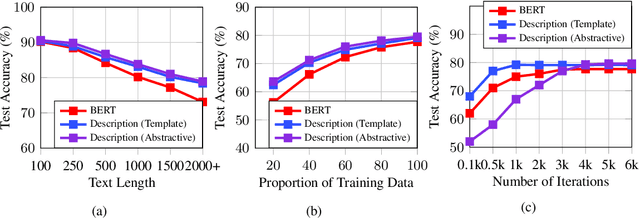Description Based Text Classification with Reinforcement Learning
Paper and Code
Feb 08, 2020



The task of text classification is usually divided into two stages: {\it text feature extraction} and {\it classification}. In this standard formalization categories are merely represented as indexes in the label vocabulary, and the model lacks for explicit instructions on what to classify. Inspired by the current trend of formalizing NLP problems as question answering tasks, we propose a new framework for text classification, in which each category label is associated with a category description. Descriptions are generated by hand-crafted templates or using abstractive/extractive models from reinforcement learning. The concatenation of the description and the text is fed to the classifier to decide whether or not the current label should be assigned to the text. The proposed strategy forces the model to attend to the most salient texts with respect to the label, which can be regarded as a hard version of attention, leading to better performances. We observe significant performance boosts over strong baselines on a wide range of text classification tasks including single-label classification, multi-label classification and multi-aspect sentiment analysis.
 Add to Chrome
Add to Chrome Add to Firefox
Add to Firefox Add to Edge
Add to Edge